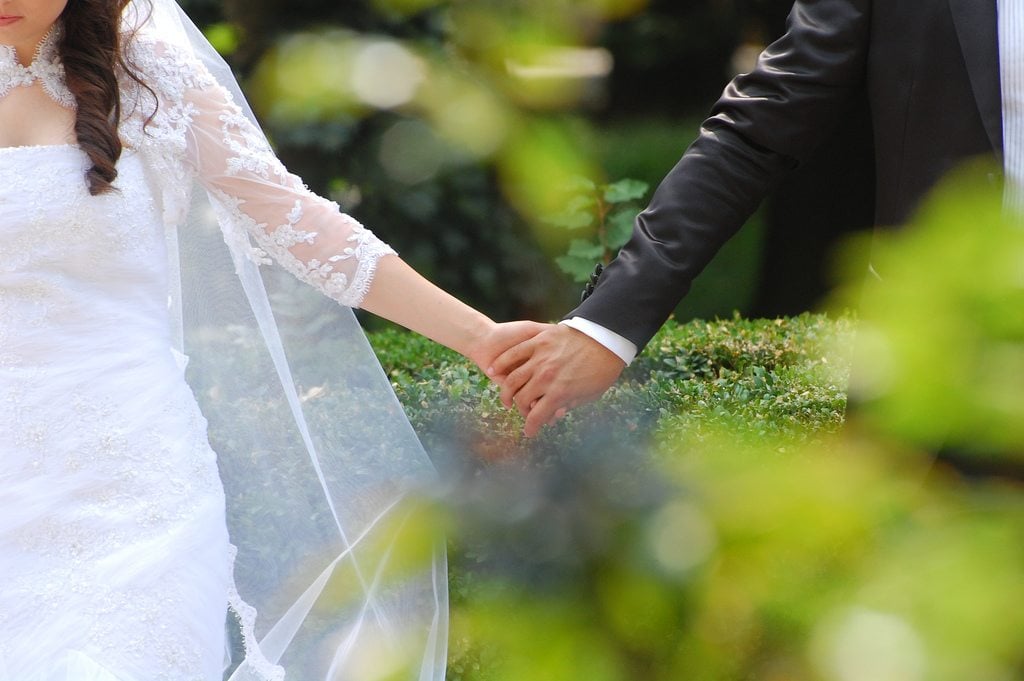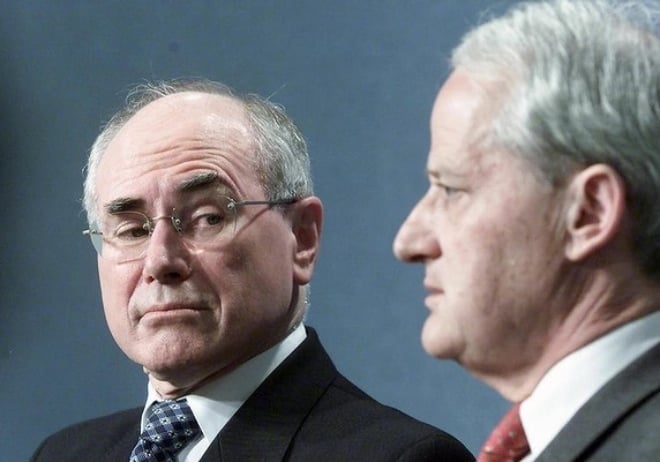We Don’t: How Australians Are Saying No To The Marriage Act
Two-thirds of us favour same-sex marriage. So why are heterosexual couples still required to say they disapprove of it in their own weddings?

It has been just over ten years since the Howard Government reacted to growing support for the legalisation of same-sex marriage by making it more illegal than ever.
The Marriage Amendment Act of 2004, introduced by then Attorney-General Phillip Ruddock, specifically outlawed marriages between a man and a man and a woman and a woman, and made a key legal change to civil wedding ceremonies.
With just 69 words in total, the 2004 additions to the Act hammered the words “marriage, according to law in Australia, is the union of a man and a woman to the exclusion of all others” into thousands of weddings and inspired years’ worth of unwavering scorn from equal rights campaigners.
Jarrod Watters and Rebecca Lehmann, who married at Broken Hill in April, were not happy to find out they would have to recite the line, seeing it as an unwelcome swipe at a family member who would be expected to politely applaud it at the end.
“I personally think it’s wrong that, for us to marry each other, we first had to swear to something we don’t believe in. Fair enough, some people may still want that included in their vows but it should be a choice not mandatory,” Rebecca said.
“We have always been supportive of gay marriage, but the biggest influence to include our own sentence about marriage equality was when my youngest brother came out at the start of the year and told us he was gay.”
“When our celebrant told us by law we had to swear that the union was between a man and a woman to the exclusion of all others we strongly disagreed, and it felt wrong not to add our opinion to it.”
They could not legally avoid reciting the offending words and had to settle with writing their own statement, explicitly disagreeing with roughly 30 per cent of the one preceding it.
The highly visible late-additions to the part of the ceremony known as the monitum have been controversial from the second they hit the floor of Parliament. Engaged heterosexual supporters of marriage equality have been holding tense discussions with prospective celebrants on this one small clause for years, and wedding guests have been “gagging a little” at its utterance for just as long.
Now as support for marriage equality climbs to record heights in Australia the number of couples making a stand on their wedding vows with their wedding vows seems to be climbing too.
Sydney-based celebrant and vice president of Australian Marriage Celebrants Inc, Gail Nagel said in the past 18 months she personally had noticed a significant increase in the number of couples asking to remove or avoid the “a man and a woman to the exclusion of all others” line, a request celebrants are legally required to refuse.
She said if the monitum was not read verbatim the marriage could be invalid and the celebrant could risk de-registration, but, she said, that had to be balanced against the often strongly held views of the customers.
“It sets up a climate of fear,” Ms Nagel said.
“We’re boxed in. If they are really, really insistent I might suggest or do a reading on their behalf, and put the words as such so that doesn’t jeopardise my standards. I am a supporter of marriage equality but this can be very uncomfortable for me … I do know some are more candid.”
According to Ms Nagel as many as one third of her clients wanted to kick the new addition to the monitum out of their weddings. Another celebrant said about half of her clients had similar thoughts.
While the monitum may remain an emotional issue for couples and a stressful one for celebrants, the Federal Attorney General’s Department does not appear worried that some couples feel obliged to use the act of marriage to make representations against the Marriage Act.
Newlyweds, or their celebrants, need not fear any legal repercussions for their stands, according to a spokeswoman from the AGD.
“There is no prohibition on a marriage celebrant voicing a couple’s opposition to this definition or support for same-sex marriage if the couple has requested that this be expressed,” she said.
“However, this must be done in addition to and not in substitution for the words required to be said under section 46 of the Marriage Act.
“The department is aware that this practice takes place and can confirm that this does not affect the validity of the marriage, nor are there any ramifications for a celebrant or couple when such opposition or support is included in a marriage ceremony.”
–
Ben Brennan is a writer and journalist based in Adelaide. He has edited a few regional newspapers and radio websites over the years, and now uses his free time to shout at his television.
Feature image via Irina Patrascu.
